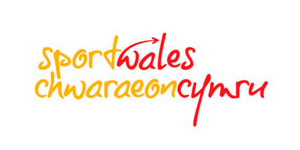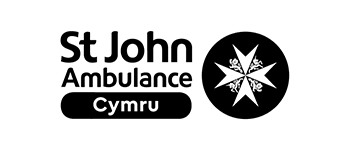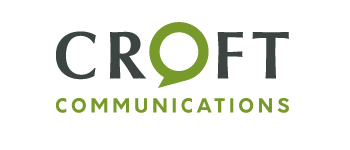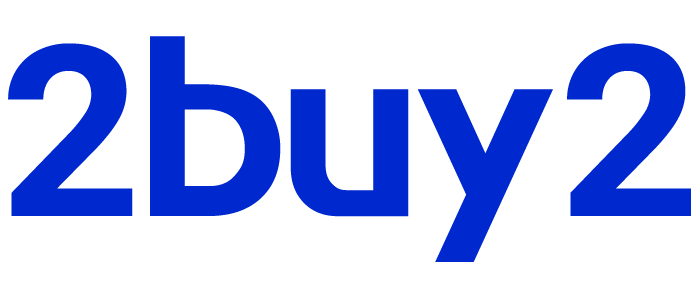DBS Checks for Sports Clubs
A key part of a sport club’s safeguarding procedure are background checks for staff and volunteers by way of DBS checks. Whilst DBS checks are an essential tool in analysing a person’s suitability to work with vulnerable groups, knowing exactly what type of checks are available and who is eligible for them can be confusing.
DBS Overview
Simply put, a DBS check is a record of a person’s criminal convictions and cautions – carried out by the Disclosure and Barring Service. There are three ‘levels’ of DBS checks that are available. These can be summarised as;
- Basic Disclosure: A ‘basic’ check will search for any unspent criminal convictions and is the most accessible type of DBS check. A basic check is available to anyone and can be applied for by the individuals themselves.
- Standard DBS: As well as criminal convictions, a standard check will look for any cautions, warning or reprimands against an individual. Unlike for basic DBS checks, individuals cannot apply for these themselves, rather it is for an employer/organisation to submit the application on their behalf (the application is still completed by the individual in question).
- Enhanced DBS: Enhanced DBS checks go a step further and are sent securely and electronically to the police for an additional check of records.
An umbrella organisation such as a governing body, or even a local authority, can apply for a standard or enhanced DBS on someone’s behalf. This may be useful for someone who is self-employed or a sole trader that frequently comes into contact with children or vulnerable adults who may not otherwise be able to apply for a higher level DBS check.
Barred List for DBS Checks in Sports Clubs
In practice, a role that involves working with children, such as a sports coach or club volunteer, will usually warrant an enhanced DBS check. There are certain roles, namely those involving a ‘regulated activity’ (details below), that will also require a search of the children’s and/or adults barred list. Both lists are managed by DBS, and when they are required, the barred list information will be included in the enhanced disclosure certificate.
An individual can find themselves on a barred list if, based on relevant convictions, cautions or other relevant information (i.e. evidence of inappropriate behaviour), they are deemed to pose a present or future risk of harm to vulnerable groups. An individual who is on a barred list will be breaking the law if they seek work in a regulated activity with the group from which they are barred from working with. Likewise, an employer or organisation taking someone on in a role involving a regulated activity will be committing an offence if they know that person is on the relevant barred list. Both offending parties could be liable for up to 5 years imprisonment and/or a fine.
It is also important to note that employers and organisations, such as those providing regulated activities, have a legal duty to submit a referral to DBS where they have concerns that someone has either caused harm or has the potential to cause harm to vulnerable groups. Information on barring referrals can be found here.
Eligibility for DBS Checks in Sports Clubs
An employer/organisation deciding whether an individual is suitable for a role is also responsible for working out the level of check (if any) the role is eligible for, therefore every sports club must be able to judge the eligibility criteria correctly. When deciding what level of DBS check is required, a sports club must consider who the club provides services for; what the roles involves; how often and where the roles are performed.
Individuals who work in certain specified establishments, such as schools, nurseries and children’s homes will typically be automatically eligible for enhanced DBS checks and a search of the barred list. For those not working in a specified establishment on a regular basis, eligibility for the higher level DBS checks will depend on whether they are taking part in a ‘regulated activity’. An individual who is engaging in a regulated activity with children will be eligible for an enhanced DBS check with a mandatory search of the children’s barred list.
When working with children (i.e. people under the age of 16), an individual is engaging in a regulated activity if they are teaching, instructing, coaching, training, supervising, caring, or driving a vehicle only for the children. The activity can also include giving advice or guidance to children relating to their physical, emotional or educational wellbeing. Full details as to what counts as a regulated activity with children can be found at the Department of Education here.
There is DBS eligibility tool on the Government’s website which you may find useful.
Exceptions for DBS Checks in Sports Clubs
In most cases, if a club’s coaches, volunteers or instructors role brings them into contact with children then they can reasonably expect to be taking part in a regulated activity. However there certain scenarios where a person’s role does not fall within the legal definition.
The ‘peer exemption’ applies where an activity is carried out by a person in a group assisting or acting on behalf of, or under direction of, another person engaging in regulated activity. For example where an assistant coach is working under the supervision of a head coach – it is the head coach who is performing the regulated activity.
For an activity to be classed as a regulated activity it may also need to meet the frequency and ‘period condition’. There are certain activities that only need to carried out once to be classed as a regulated activity, for example providing physical help with toileting, washing or dressing because the child needs it due to age, illness or disability. For other activities, such as teaching, training or supervising children, they must be carried out more than 3 days in a 30 day period or overnight (between 2am-6am with the opportunity for face-to-face contact with children) to be classed as a regulated.
It is important to note that even if a position now falls outside the definition of regulated activity, they may still be eligible for an enhanced DBS check but only without a search of the barred list.
DBS Checks for Working with Adults in Sports Clubs
As well as safeguarding children, sports clubs are also responsible for looking after the welfare of adults – with the Care Act 2014 putting the safeguarding of adults on a statutory footing. There are some key differences between the rules surrounding the safeguarding of children and adults, such as different governing, different processes of dealing with complaints, and the types of harm being prevented (e.g. financial abuse and coercive control).
Guidance by the Disclosure and Barring Service on DBS checks and working with adults in sport can be found here. As with working with children, eligibility for DBS partly hinges on whether the services provided are regulated activities. In the context of a sports club, a regulated activity when working with adults could include providing health care by or under the direction/supervision of a regulated healthcare professional. A club doctor/nurse/physiotherapist, for example, will require an enhanced DBS and an adults barred list check.
It is worth noting that first aid it is only a regulated activity if it is provided on behalf of an organisation set up for the purpose of providing first aid. This does not apply to individuals who may volunteer to provide first aid alongside their primary role. There are no frequency or period conditions when it comes to regulated activities with adults.
Outside of regulated activities – an individual can be eligible for higher level DBS checks if they are ‘working with adults’, the eligibility criteria of which is largely centred around safeguarding vulnerable adults. In a sports context this could include;
- Teaching, advising or guiding adults who are in receipt of health and social care (e.g. coaching);
- Carrying out a role with specific responsibility for caring for or supervising adults in receipt of social care;
- Driving adults (e.g. to training/matches). This is applicable even if the adult is accompanied by someone caring for them – but does not include any personal arrangements made between the adult or their family/friends.
If any of these activities are performed specifically for adults who are in receipt healthcare, care or assistance because of their age, illness or disability, then the individual may be eligible for an enhanced DBS without an adults barred list check. In these circumstances however the frequency and period condition requirements apply and so the roles will need to be carried out more than 3 days in a 30 day period, overnight or at least once a week on an ongoing basis.
The Ann Craft Trust have created a very useful flowchart to help identify who is eligible for DBS and at what level for sports clubs working with adults.
WSA DBS Checks for Sports Clubs
The WSA have been offering a full range of DBS checks since 2016 and is the only bilingual DBS service in Wales. We offer a very competitively priced service, with members also benefiting from a discounted rate. The DBS service is not run for profit, meaning that the money generated is invested back into services for sport and physical activity. The service is available to WSA members and their associated sports clubs, as well as non-members and is accompanied by a helpline to support organisations through the DBS process.
If you are not currently utilising our DBS service, please complete a non-obligation pre-registration application here and a member of our team will be in touch. If you’re not a WSA member, and even if you’re not involved in sport or physical activity, you are still more than welcome to utilise the bilingual DBS checking services available, we have numerous charities and third sector organisations across the UK that utilise the not for profit DBS checking service. Full information on the WSA’s DBS service for sport & leisure, can be found on the WSA website. To express an interest in the service – please follow the DBS Application Form link or access our trading arm Vibrant Nation website directly to express an interest in the DBS service.
DBS checks are one (very important) part of an organisations wider safeguarding strategy, to be used alongside a host of other safeguarding prevention measures. The WSA has a wide range of resources and courses that can aid your organisation in its’ safeguarding journey. These can be found on the Safeguarding section of the WSA website.



















